Kan 11's The Outpost: A Raw Dive into the Yom Kippur War – TV Review
Through raw portrayals of battlefield courage, abandonment, and brotherhood, The Oupost channels the trauma of the Yom Kippur War. It's a searing reminder of that war’s lasting scars and the courage of those who bear them.
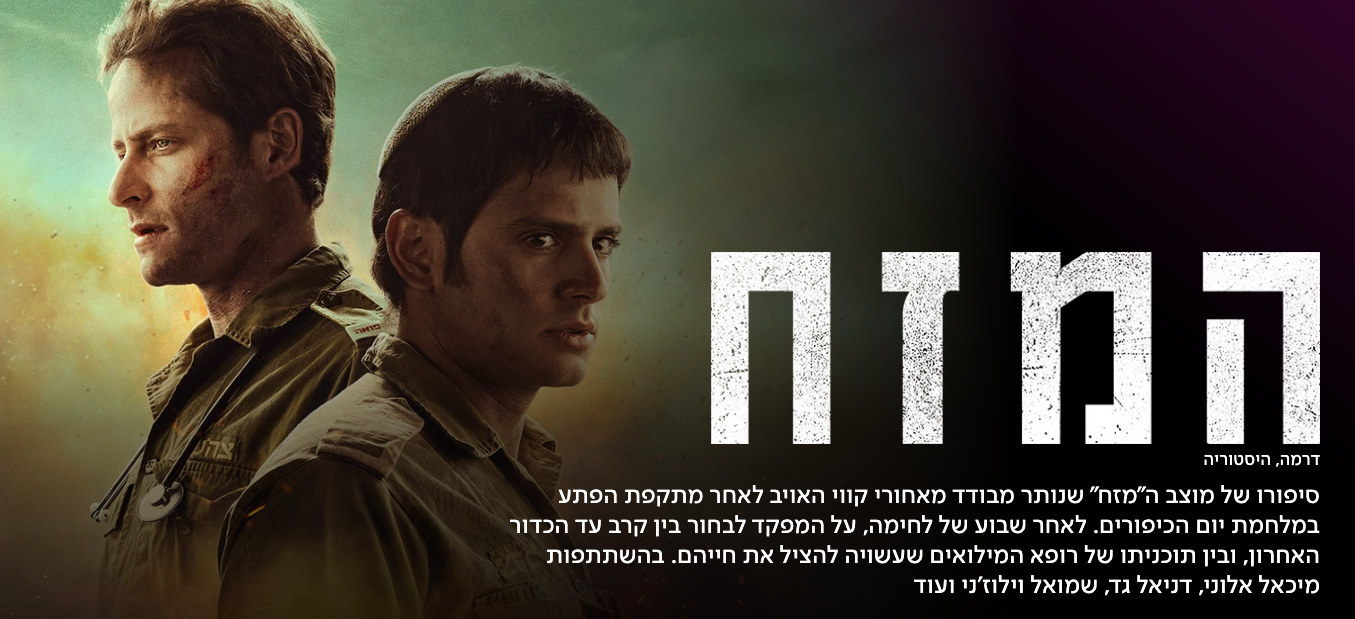
HaMezach, The Outpost, premiered on Kan 11 on April 27. As reported by Jpost, the series was set to run in October 2023 to mark the 50th anniversary of the Yom Kippur War, but when the October 7 massacre was perpetrated and a new war broke out, it was postponed. It's final episode aired on Sunday (May 25th).
The Outpost is a gut-wrenching, meticulously crafted series that immerses viewers in the harrowing reality of the Yom Kippur War. Based on the real memories of the 42 soldiers stationed at the isolated Mezah outpost on the Bar-Lev Line, this five-episode drama uses their actual names, grounding its narrative in historical authenticity.
The first two episodes blend visceral combat sequences with intimate character studies, all while subtly weaving in the political failures that shaped the conflict.
Directed by Lior Hefetz and with artistic direction by Shahar Bar-Adon, the series is both a time capsule and a mirror to contemporary Israeli struggles, delivering an experience that is as emotionally raw as it is visually authentic.
A Journey Back to 1973
The series opens with a stark frame: the Agranat Commission’s post-war interrogation of one of the main characters, setting a tone of accountability and reflection.
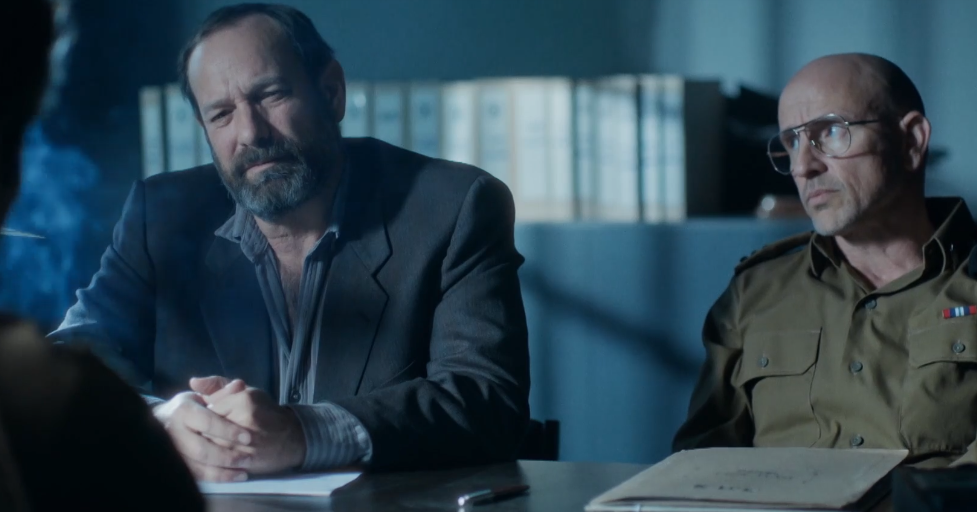
It then flashes back to October 5, 1973, the day before the war’s outbreak, introducing Dr. Nahum Verbin (Michael Aloni), a laid-back, hippieish medic arriving at the remote Sinai outpost in white sneakers and puka shell necklaces, expecting a quiet stint handing out aspirin and blister cream to bored soldiers.
The outpost, perched on the Suez Canal, is commanded by Shlomo Erdinast (Daniel Gad), a young hesder yeshiva soldier anticipating a peaceful Yom Kippur filled with prayers and fasting. The blaring rock music and casual camaraderie among the 42 soldiers display a deceptive calm, shattered when the Egyptian Army launches a devastating surprise attack on October 6 by air, land, and sea.
The authenticity of the setting is staggering. An in-depth Ynet article explains that it was filmed at an abandoned outpost near Moshav Ein Yahav in the Arava. The production team meticulously recreated the Mezach stronghold, complete with refurbished American tanks from the era, one fully operational, another with a barely functional barrel nicknamed “the corpse.”
Vintage 1970s Uzis, period-appropriate communication devices from the Signal Corps Museum, and a Tel Aviv apartment dressed with Hebrew books and a menorah (filmed in Georgia for cost efficiency) transport viewers back to 1973. Bar-Adon’s team even consulted surviving veterans to ensure every detail, from the bunkers to the command center, was historically accurate. The veterans themselves, visiting the set, were moved to tears by its fidelity, feeling as though they had stepped back into their past.
The Human Cost and Moral Dilemmas
The first two episodes thrust viewers into the chaos of the Egyptian assault. Outmanned and outgunned, the soldiers face mounting casualties, with Nahum, the oldest at 29 and a former elite unit member, frantically trying to save the wounded with dwindling medical supplies.
Aloni’s performance is a revelation, his Nahum is both a free-spirited doctor and a desperate hero, wracked with guilt over those he cannot save. Daniel Gad, as Shlomo, embodies the youthful idealism of a religious commander determined to prove his courage, yet burdened by impossible decisions.
Their contrasting perspectives ignite a central conflict: Nahum passionately argues for surrender to preserve lives, while Shlomo insists on fighting to the last bullet, echoing the iconic “It is good to die for our country.” This debate, raw and philosophical, feels like a snapshot of Israel’s soul, resonating with ongoing national discussions about survival and sacrifice.
The series’ strength lies in its unflinching portrayal of the soldiers’ abandonment. Despite desperate radio pleas for reinforcements, supplies, or evacuation, the soldiers are repeatedly told to “hang on.” Failed rescue attempts, including a botched sea evacuation, leave them isolated, their despair palpable.
This growing sense of betrayal hurts deeply in light of sentiments from Gaza border communities during the October 7 attacks, where residents felt similarly forsaken by delayed military responses.
This parallel makes The Outpost a difficult watch, not just for its graphic violence, depicted with unflinching realism, showing bloodied wounds and chaotic combat, but for the emotional weight of abandonment and loss.
Brief glimpses of the military command in Tel Aviv, including figures like IDF Chief of Staff Lt.-Gen. David “Dado” Elazar, hint at the political failures that unfolds in later episodes. The series also honors the fallen by displaying their real photos and names at the end of each episode, a poignant touch that grounds the drama in reality.
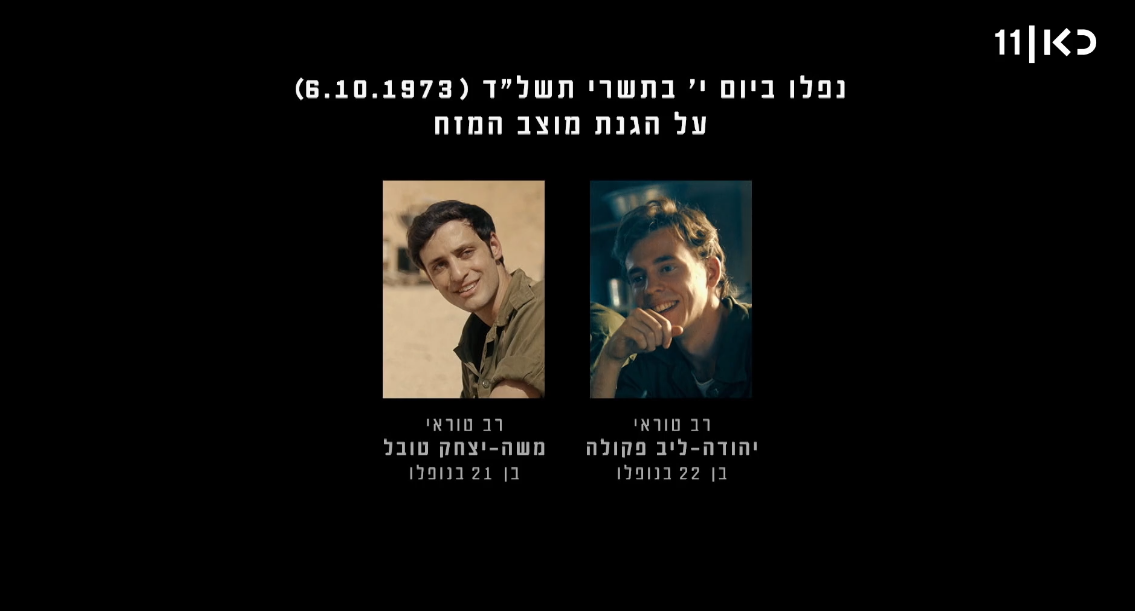
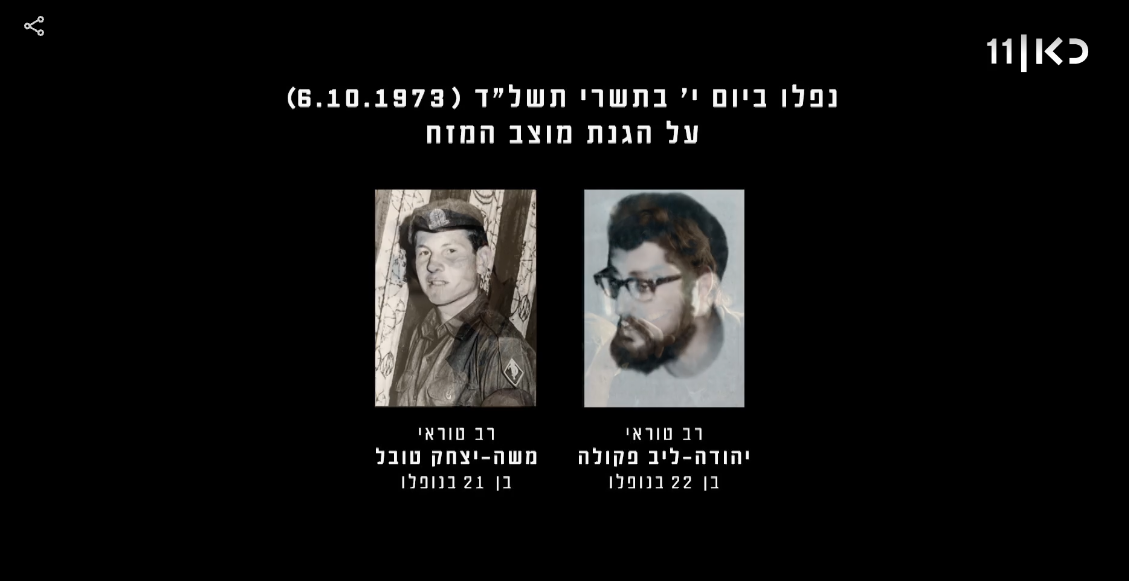
Eventually, the soldiers receive an order that they should surrender, which is later rescinded, and left up the commander. Surrounded by the enemy, out of food, water and medical supplies and with many wounded soldiers, they decide to surrender, hoping this will save their lives.
In a devastating and poignant decision, when they surrender, they take the unit's Sefer Torah with them.
But they don't bet on the shocking torture that awaits them in detention, and the fact that they will return with PTSD, which Israel has no idea how to treat. But worst of all, that they will be interrogated by the IDF and be judged harshly for sharing state secrets, even under horrific torture.
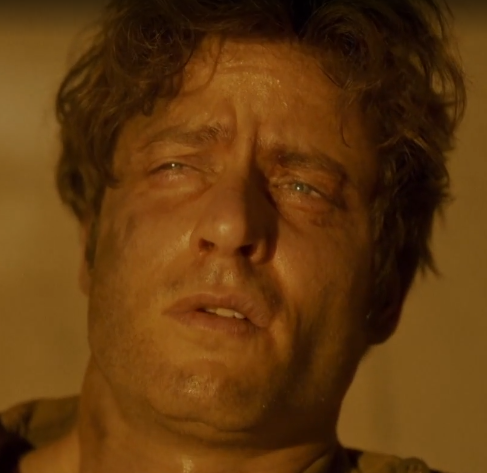
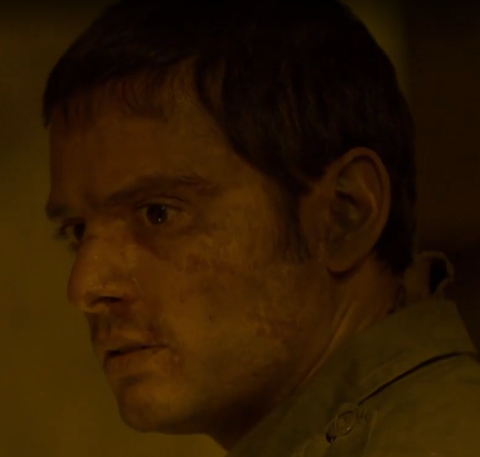
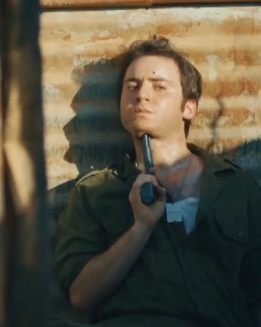
Performances and Emotional Impact
Michael Aloni, known for Shtisel and The Beauty Queen of Jerusalem, shines as Nahum, balancing a carefree demeanor with intense heroism under pressure. Daniel Gad, a rising star from Line in the Sand and Shababnikim, delivers a nuanced Shlomo, capturing the tension between faith, duty, and fear.
The ensemble cast brings the outpost’s camaraderie and desperation to life, making every loss feel personal. While the series is less intense than the film which shares the same name due to the smaller screen, its realism, supported by authentic sets, restored tanks, and graphic combat, ensures it’s not for the faint-hearted.
A Timely Reflection
The Outpost is a triumph of storytelling, blending historical precision with raw emotion. Its depiction of soldiers dealing with impossible choices and feelings of abandonment is both a tribute to the Yom Kippur War’s heroes and a haunting reflection of Israel’s ongoing challenges.
For international viewers, when it inevitably reaches global streaming platforms, it will stand as a gripping war drama.
For Israeli audiences, it’s a cathartic yet painful exploration of resilience and betrayal.
I found it an incredibly difficult watch. It brought back all the trauma of watching Israel just after October 7th, and reading about the soldiers, those left to fend for themselves defending Gaza border communities, and the residents of the same communities, waiting in their safe rooms, holding the doors closed against sure death, clutching kitchen knives, helpless and terrified, for help which didn't arrive. And when it did, for may it was already too late.
The similarities between the surprise assault we were hit with during the Yom Kippur War and that we experienced on October 7th are also chilling.
The hardest part of it was watching the scenes of torture (which I admit I watched on fast forward), knowing that our own beloved soldiers are enduring similar torture. It really made it so much more devastating, knowing that it's not just history, it's also our current reality.
Whether it heals or reopens wounds, The Outpost demands to be felt, offering a visceral, unforgettable look at the cost of the Yom Kippur war and the strength of those who endured it. It's not an easy watch, but it's an important one.